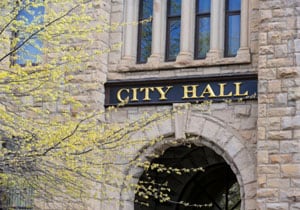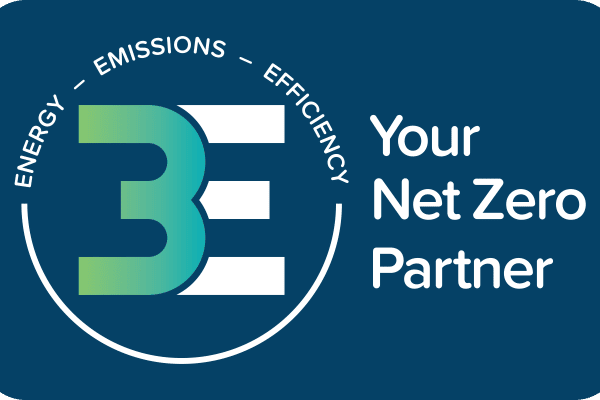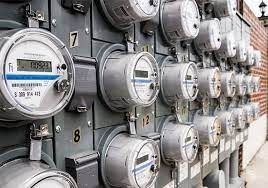Australian Governments and public sector organisations are becoming increasingly focused on achieving long term sustainability objectives, with many setting ambitious targets such as carbon-neutrality by 2030, or 2050 in the case of commecial buildings in City of Sydney. Local Government Areas (LGAs) who are serious about achieving such targets must implement energy efficiency upgrades in councils as part of best practice energy savings projects for councils.
Why? The reason is simple: If LGAs wish to ensure successful outcomes from energy savings projects for councils and need verifiable evidence of results, then performance-based energy savings projects for councils is the way to go.
Performance-based energy savings projects for councils essentially provides guarantees around the results from the energy conservation measures / energy efficiency upgrades in councils, in terms of benefits gained from economic, environmental and energy consumption stand points.
-
What ‘best practice energy savings projects for councils’ really means
-
Types of Energy Efficiency Upgrades in Councils
-
Case Studies: Best Practice Energy Savings Projects for Councils
What ‘best practice energy savings projects for councils’ really means
Best practice implies reliability, quality, low-risk and assurance or peace of mind; inspiring confidence that the desired outcomes of the project will be achieved.
From a local government perspective – in terms of creating energy efficiency and meeting sustainability targets – finding a reliable Energy Services Company (ESCO) with the right experience and technical expertise, is absolutely key to achieving successful outcomes in energy savings projects for councils.
When it comes to energy efficiency upgrades in councils, LGA’s should consider implementing best practice energy savings projects:
- First and foremost, ensure there is a funding strategy or budget allocation and a clearly defined budget approval process for energy savings projects.
- Define up front what the return on investment criteria should be. The ROI can be defined either by the financial savings/payback period (years), or energy savings (e.g. reduction in CO2 emissions, electricity, gas and water savings etc.) In other words, determine the success criteria for the energy efficiency upgrades in council buildings. It’s really important to determine this before any investment is made, otherwise, there’ll be no benchmark for success or failure.
- Search for an ESCO that’s a single-point-of-contact firm with the ability to implement energy efficiency upgrades for councils, end-to-end servicing and turn-key energy savings projects for councils.
- Verify that the ESCO has a good reputation in the industry and a strong track record in working with local governments.
- Ensure the ESCO is a performance-based contractor that’s prepared to provide guarantees on energy savings projects for councils.
- Select an ESCO that has a strong energy advisory/sustainability competency backed by practical experience in delivering guaranteed / best practice energy savings projects, or Energy Performance Contracts (EPCs).
- Request a proposal for the ESCO to deliver an Energy Advisory Report / Energy Efficiency Opportunity Assessment; a report that details an analysis and evaluation of current energy utilisation across the council, one that includes detailed descriptions of Energy Conservation Measures (ECMs) in conjunction with financial modelling of projected costs, savings and return on investment indicators. The report should suggest which ECMs should be prioritised as part of an energy efficiency upgrade, based on the Council’s return on investment criteria and budget allocation.
- Based on the findings and key recommendations in the report, request a fixed-price proposal to implement the project with guaranteed savings. Fixing the costs reduces the financial risks associated with the energy efficiency upgrades / energy savings projects for councils, and the savings guarantees ensures a predictable and reliable outcome.
- The ESCO must provide a detailed Measurement & Verification plan as part of the energy savings project. The M&V should be done according to international standards: International Performance Measurement & Verification Protocol – IPMVP.
- The ESCO should be prepared to deliver an Actual Savings Report with M&V results and back its commitment to the savings guarantee. If any shortfall exists, the ESCO should implement additional ECMs at no extra charge or rebate the difference.
Types of Energy Efficiency Upgrades in Councils
Large metropolitan and regional Councils typically have a mixed portfolio of property and building types including: office buildings, town halls, libraries, aquatic centres, pavilions, parks, halls, community centres, multi-level car parks etc. As such, there are multiple areas and opportunities to implement energy efficiency upgrades in councils. The type of energy efficiency upgrade would depend on the type of facility, but normally the energy efficiency upgrades in councils could involve the following energy conservation measures:
- Lighting upgrades to LED lighting
- Lighting controls, timers and sensors
- Optimisation of heating, ventilation and air conditioning systems (HVAC)
- Boiler upgrades / optimisation
- Chiller upgrades / optimisation
- Optimisation or upgrades to Building Management Systems (BMS)
- Building Analytics and fine-tuning
- Appliance controls
- Variable Speed Drives (VSDs)
- Voltage Regulation Units (VRUs)
- Solar PV systems
- Battery storage systems
- Demand response management
- Water fittings, controls, pumping and treatment
- Co-generation and Tri-generation systems
City of Sydney engaged Ecosave in a large scale EPC to deliver energy efficiency upgrades in councils ‘ 47 buildings including heritage listed sites. Waverely Council is yet another example of how multiple energy efficiency upgrades in councils ‘ various building and property assets can save thousands of dollars and reduce carbon footprint by hundreds of CO2 tonnes every year.
In addition to these energy efficiency upgrades in councils, LGAs can also save money and save resources by outsourcing their energy management, energy procurement and utility bill management / bill validation requirements to a specialist provider – See Ecosave Watch – Energy Management Solutions
Case Studies: Best Practice Energy Savings Projects for Councils
[slide-anything id=”1460″]
Since 2002, Ecosave has enjoyed a strong track record of working with local government organisations in providing energy performance contracting (EPC) services and energy savings projects for councils – See Case Studies for more.
Ecosave has become one of the leading EPC ESCOs and a trusted partner to implement energy efficiency upgrades and performance-based energy savings projects for councils.
Ecosave has successfully delivered energy savings projects for councils in both metropolitan and regional areas including:
Furthermore, Ecosave is in the process of implementing four major energy savings projects for councils in the Eastern Alliance for Greenhouse Action (EAGA) initiative.
Click here to find out more about Ecosave’s experience with local councils
Ecosave has not only enjoyed success in implementing energy savings projects for councils, but also energy savings projects for various State government organisations and state-owned entities. For example, Ecosave has won the last six of seven competitive EPC projects with the NSW Department of Education .
Get a FREE 30 minute consultation with the energy efficiency experts at Ecosave to review your Council’s sustainability requirements and energy efficiency opportunities.
If you liked reading this article, you may also be interested in reading:
- Ecosave supports Waverley Council in delivering its environmental targets
- Energy Savings Projects: How organisations can save big on energy bills
- How to mitigate risks of escalating energy prices
- How energy conservation projects can improve shareholder value and attract corporate investors
- 7 reasons why businesses can’t afford to ignore energy conservation
- How and Why an Energy Audit cannot achieve guaranteed energy efficiency outcomes
- Client testimonials from LGAs
- Ecosave’s Tier-1 client portfolio
- Energy Services: Overview
- Regional Opportunities in Energy Efficiency
- Energy Advisory
- Our Approach
- Latest News & Insights
- Useful links







